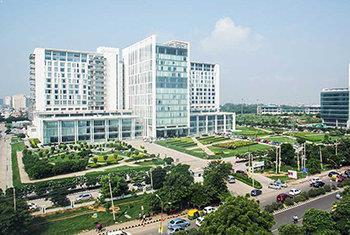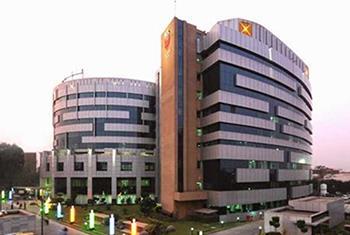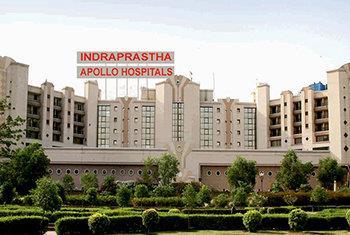The Cost of Immunotherapy in India
India’s immunotherapy hospitals offer top-notch care at a significantly lower cost than any other developed nation. India’s cancer treatment program, which includes immunotherapy, has a long history of success and is constantly getting better.
Like any other complicated cancer treatment, immunotherapy calls for a dedicated cancer department.
The cost range for immunotherapy sessions in India is between ₹1,50,000 ($1,830) and ₹4,55,000 ($5,550).
India’s immunotherapy hospitals provide a variety of cancer and other disease treatments, including autoimmune diseases. It encourages the body’s defences to target cancerous or other ill cells.
Combining immunotherapy with other medical procedures like radiation, chemotherapy, and surgery is possible.
The number of sessions required will depend on how severe the cancer is. Some patients may require fewer than one session, while others may require more.
For instance, the cost of CAR-T cell therapy, an immunotherapy used to treat specific blood cancers, can reach $120,000.
The cost of hospital stays, supportive care, and travel may also be incurred throughout the entire course of treatment. Certain Indian hospitals provide all-inclusive treatment packages that include all immunotherapy-related costs.
Numerous factors influence immunotherapy in India, such as the kind of treatment, the technique used, the preferred hospital and location, the credentials of the physician, and so forth.
For this reason alone, a great number of individuals travel to India for medical care for a variety of reasons, the most significant of which is that immunotherapy costs far less there than they do in other nations.
Factors Affecting the Price of Immunotherapy in India
The following are some factors that may impact the cost of immunotherapy in India based on infrastructural cost:
- The medication expenses.
- Length of the medical intervention.
- Geographical position.
- Costs associated with hospital stays.
- Policies and subsidies from the government.
- Packages for medical travel.
- Infrastructure and reputation of the hospital.
- The skills and experience of medical providers.
- The method and quantity of diagnostic tests.
- The selection of a therapeutic approach.
- The standard and grade of medical care and amenities are comparable to those of the most prestigious healthcare facilities in the world, even when the cost of lodging, meals, and transportation is taken out.
Factors that may impact the cost of immunotherapy in India based on treatment and condition of the patient:
- Cancer type: The type of cancer being treated determines how much immunotherapy will cost. For example, immunotherapy treatments for melanoma and lymphoma are typically more costly than treatments for other cancers, like breast and lung cancer. This is because immunotherapies are designed to treat particular cancer types, and the complexity of the treatment may affect how much it costs.
- Cancer metastasis: How far the disease has spread and what body parts are affected by it are important factors in determining the cost of immunotherapy in India. Immunotherapy will be more affordable if cancer hasn’t spread to other organs in the body.
- Type of Immunotherapy: The kind of immunotherapy that is utilized affects how much it costs. For example, compared to other immunotherapy modalities like adoptive cell transfer and dendritic cell therapy, monoclonal antibody therapy is typically more costly. The kind of medication and dosage used in immunotherapy also affect the cost.
- Patient’s Medical History: The patient’s medical history also affects the immunotherapy cost. The cost of immunotherapy may be higher if the patient has any pre-existing medical conditions, such as diabetes or heart disease. The cost of immunotherapy may also be greater if the patient has previously undergone chemotherapy or radiation therapy for their cancer.
- Treatment Plan: Lastly, the doctor’s treatment plan will determine how much immunotherapy will cost. Depending on the number of treatments required and the intricacy of the treatment plan, immunotherapy may become more expensive.
- Drug types: There are various drug types used in immunotherapy, and these drugs have varying costs. The medications that are prescribed by the physician will determine the course of treatment and, in turn, the immunotherapy cost.
- Treatment Administration: Injections, infusions, or oral medications are commonly used to administer immunotherapy. The cost may include the actual administration of the treatment, which can involve healthcare professionals, equipment, and monitoring.
- Supportive medications and services: Immunotherapy may necessitate the use of additional medications to manage side effects or to supplement the treatment. The total cost may be impacted by these drugs and associated services like symptom management or nursing care.
Additional Cost
- There are undoubtedly additional costs associated with immunotherapy in India.
- To determine whether the patient is well enough to receive immunotherapy, the doctor will order a few tests before the procedure.
- These raise the price of cancer treatment in India as well as the cost of immunotherapy.






